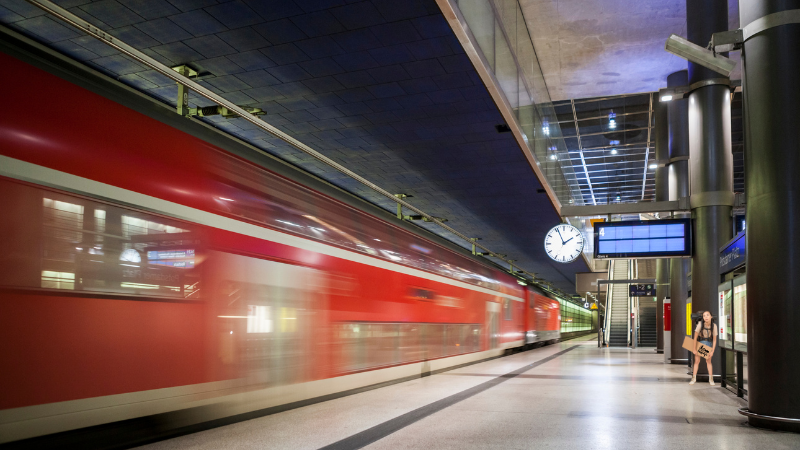Transportation
Move from A to B – quickly and easily.
Transportation Information
Hey future docs! Getting around in a new city can be confusing, so we've put together this guide to help you navigate Berlin and Halle like a local during the ICEP AIT 2025. From subway systems to intercity trains, we've got you covered – all designed to help you save money and time while making the most of your experience.
Transportation within Berlin
Berlin's public transport network is impressive and super convenient. With a single ticket, you can hop between U-Bahn (subway), S-Bahn (urban rail), trams, and buses – perfect for exploring the city between lectures and social events.
Price: €33.30 (just €6.66 per person if you travel as a group of 5!)
The BVG (Berlin's transport company) runs an incredibly efficient network with trains arriving every 5–10 minutes during peak hours. You can make unlimited transfers within the validity period, making it perfect for fitting in multiple sightseeing stops between academic sessions.
- Operating Hours: U-Bahn runs until midnight on weekdays, with 24-hour service on Friday and Saturday nights – perfect for those evening social activities!
- Night Buses: If you miss the last train, look for routes marked with an "N" – these night buses follow similar routes to the U-Bahn lines.
Transportation within Halle (Saale)
Halle might be smaller than Berlin, but it has an excellent transport network that's super easy to navigate. The compact size of the city means you can get between the university, accommodations, and social venues without any hassle.
Price: €14.44 per person for the entire 5-day period!
Your personalized mobile ticket covers all local transport within Halle: trams, buses, S-Bahn, and regional trains (RB and RE). It's like having an all-access pass to the city! Just remember to keep your ID handy, as the ticket is linked to your name.
- Getting Around: Trams are the backbone of Halle's transport system and run frequently (every 7–10 minutes during peak hours), making them perfect for getting to morning lectures on time.
- Late Nights: If you're out late after networking events, look for the night buses (marked with "N") that run on weekends.
Plan your journey like a local with:
Intercity Travel: Berlin ↔ Halle
Moving between Berlin and Halle is a breeze thanks to Germany's excellent rail system. The journey takes about 1-2 hours depending on the train type, giving you just enough time to review your notes or catch up with new friends from the program.
FlixTrain Group Journey
For our main group transfer, we've arranged a special FlixTrain service to keep everyone together. With comfortable seating and onboard amenities, you can use this time to connect with fellow students and share experiences from your time in Halle.
Route: Halle (Saale) HBF → Berlin HBF
Departure: 14:01 | Arrival: 15:16
Total Cost: €816.00 (incl. VAT) - Already covered in your program fee!
The FlixTrain service includes reserved seating, ensuring our whole group stays together. There's free Wi-Fi onboard, so you can post those last photos from Halle or get a head start on any assignments.
Deutsche Bahn Group Options
Flex Option: €17.40 pp (2nd class) - perfect if your plans might change
Booking is super flexible with multiple options:
Travel Tips from Past Students
We've collected advice from previous ICEP participants to help you navigate Germany's transport system like a pro. These insider tips will save you time, money, and potential confusion!
- Google Maps is your friend: Unlike some countries, Google Maps is extremely accurate in Germany. Download the Berlin and Halle maps for offline use to save data.
- Real-time updates: The BVG Jelbi app (Berlin) and MOOVME app (Halle) provide live departure times and disruption alerts – essential during rush hours.
- Late night options: If you miss the last train, both Uber and traditional taxis are widely available. In Berlin, splitting a taxi between 3-4 people can be cheaper than individual night bus tickets.
- Be prepared: We recommend having travel insurance that covers transport disruptions, especially if you're planning additional travel before or after the program.
